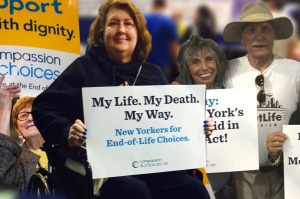Health care choices are a matter of religious freedom

Thanks to Health Care Sharing Ministries (HCSMs), victories for religious freedom have been won in three states this year. Tennessee’s Governor just signed key legislation recognizing that HCSMs are not health insurance, which ensures what nearly 25,000 Tennesseans already know, that they have the religious freedom to participate in HCSMs. By the time you read this, the governors of Utah and West Virginia may have signed similar bills passed by their legislatures.
Let me explain why this is important.
There are so many threats to our fundamental freedoms these days that sometimes peoples’ eyes glaze over when we talk about HCSMs and their connection to freedom of conscience and religious liberty. HCSMs have long been recognized as an alternative to health insurance, with many Americans choosing an HCSM because their consciences demand it. Increasingly, however, insurance regulators and other policymakers have accused HCSMs of being unlicensed insurance as a means of trying to shut them down.
The root of the problem is not whether health care sharing ministries are insurance — since they operate without contracts and without transfer of risk, they simply don’t meet the definition of insurance in law. Even the bluest state government of Michigan admits health care sharing ministries are not insurance.
The real issue is who exercises authority in health care decisions — is it a government agency that decides the right solution to overpriced medical services, or is it families and individuals? Should people of faith be allowed to access solutions that are consistent with their religious beliefs, or should the state set a one-size-fits-all solution with no opt-out? Are the people in charge of themselves, and as such, are they accountable to God for their decisions, or does the civil government control all of life, in this case, health care?
You may be hearing echoes of a very old, very familiar conflict, a little like the one that drove colonists in North America to separate from England.
Today, a handful of state governments keep harassing HCSMs because they insist on intentionally obfuscating the difference between health insurance with HCSMs.
To understand who should exercise authority in health care decisions, let’s take another approach, one with at least as much explanatory power.
Once upon a time, an ancient and notorious dissident sat by a massive stone edifice, a religious building of particular grandeur. His adversaries wanted the state to kill him (which they accomplished a few days later). His enemies employed a historically proven method for eliminating opponents. They asked him a gotcha question about taxes, but received a response that stunned them (Matt. 22:20-22). Jesus said, in essence, “Sure, pay taxes you owe to Caesar, but remember there are things in the world that do not belong to Caesar. Caesar will answer to God for his actions, just as you and I will answer to God for the things that do not belong to Caesar.”
In this case, family health care decisions belong to the family, not Caesar. When a state legislature or a federal or state executive branch agency asserts the power to require certain health care actions, like funding abortion through health insurance premiums, Caesar has crossed from his turf onto the sacred domain of families. Legislatures and agencies try clamping down on HCSMs because they have trouble recognizing that some things don’t belong to Caesar, like a voluntary decision to be a member of a HCSM.
It begins to look like the issue of whether Health Care Sharing Ministries are insurance is a red herring. The real issue is whether the state has control over everything that is health care, even a health care ministry. Should Health Care Sharing Ministries have to render unto Caesar that which is God’s? One thing we know for certain; the traveling teacher sitting by the temple in Jerusalem announced a principle for all time. All things do not belong to Caesar, including whether families choose health care sharing ministries instead of insurance regulated by the government.
Katy Talento is the Executive Director of the Alliance of Health Care Sharing Ministries.She was the top health advisor at the White House Domestic Policy Council and an oversight investigator and legislative director for the U.S. Senate.



























